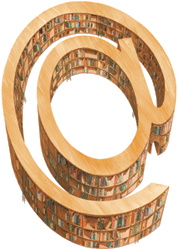Administrative and Management Metadata Committee- MAG
As part of the activities of the Steering Committee for the Italian Digital Library, the need arose for the establishment of a group of experts for the definition and implementation of metadata schemes in digitisation projects, launched within libraries and other cultural institutions at national level.
On the basis of the work carried out in 2000-2003 by the Study group on metadata standards and applications in the cultural heritage field and the experiences acquired during the digitisation programmes launched by the General Directorate for Libraries, Cultural Institutes and Copyright, and on the basis of a proposal expressed by the Steering Committee itself, it was deemed of key importance to have a qualified point of reference for any activity regarding the promotion and development of metadata models and standards.
In July 2003, as responsible for the diffusion of bibliographic rules and standards, ICCU formally established the MAG Committee as the national structure of reference for activities related to the promotion, support, management and evolution of Administrative Metadata (Metadati Amministrativi Gestionali – MAG) standards, and for assistance to the library, archive and museum communities,as far as the management of and access to information on digital objects were concerned. Therefore, The Committee built upon the activities of the previous Study Group on metadata standards and applications in the cultural heritage fields, pursuing the same general objectives but giving priority to activities related to the diffusion and evolution of the MAG set.
The goals of the MAG Committee are summarized below:
- diffusion of the MAG standard
- accomplishment of the schema related to the the AIP (Archival information package) and DIP (Dissemination information package) stages of the MAG standard
- maintenance and evolution of the standard
- issuing of handbooks and guidelines
- assistance to implementers
- training and promotion activities
- relations with other projects and agencies (European projects, Dublin Core, etc.)
- development of schemes and application profiles for descriptive metadata in the various cultural sectors.
The working groups launched the following activities:
- drafting of the handbook for applying the MAG schema
- production of general and specific supporting documentation for the various types of materials issued as Recommendations and guidelines
- production of a list of links to schemas, modelsand technical references.
